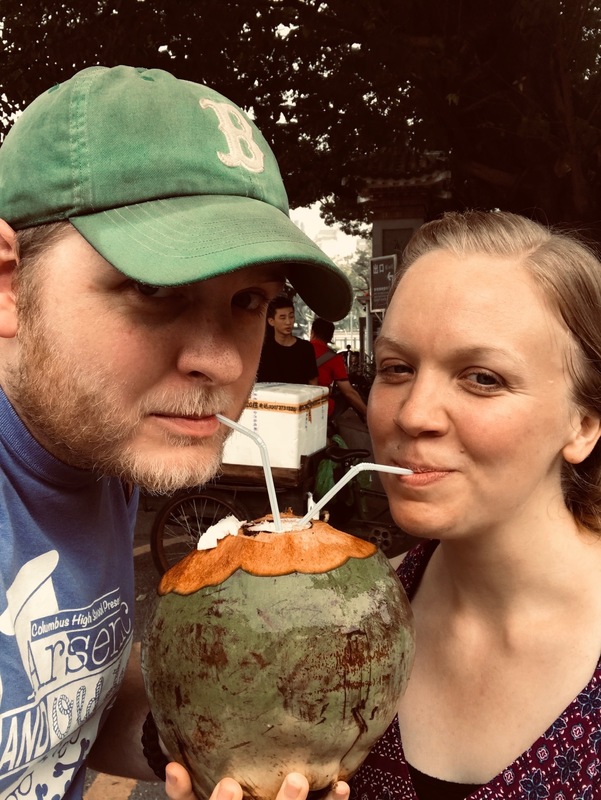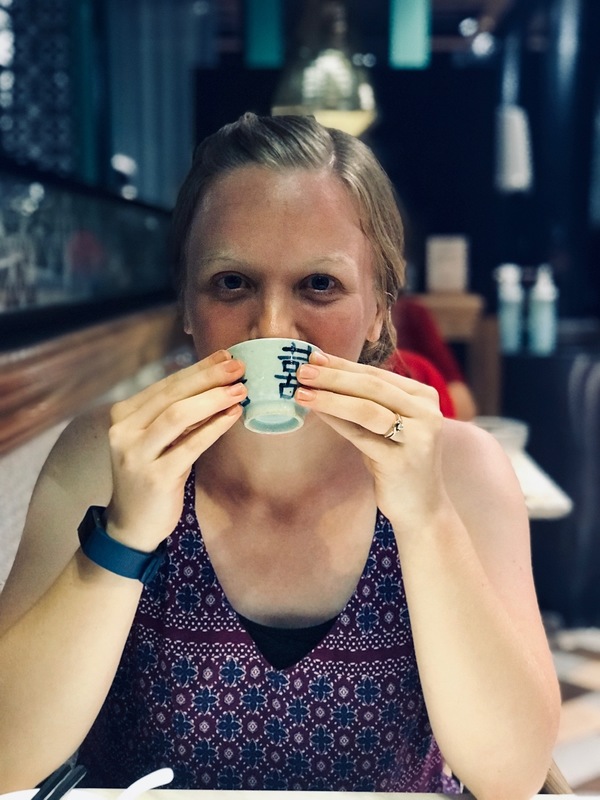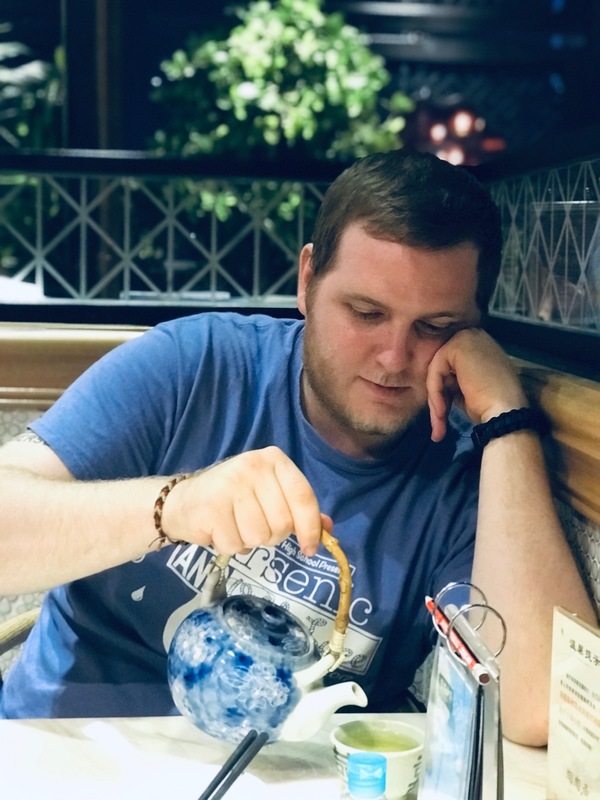English teacher Jacob Belvery’s Columbus High School classroom has changed since his first years of teaching in 2015.
Of course, it is a different number. “One over,” he recalls.
But it also changed in decor.
“Ireland, Spain, the Philippines, Hong Kong, Taiwan,” he said, describing his updated flag collection that now hangs on his walls. “(Those are) just from some of the places we’ve been.”
Belvery, who returned to CHS this year, first taught at Columbus in 2015. He spent three years as an English teacher, moving to Shenzhen, China in 2018.
“It was always kind of something in my mind, to go international and travel internationally. In college, I just couldn’t afford it,” Belvery said.
But how does one end up teaching English in China?
Maybe it was Belvery’s interest in the world.
“I’ve always been intrigued by international (travel) ... different cultures. The way different cultures view the world has fascinated me. That cultural approach to everyday life, it’s just interesting,” he said.
Or maybe it was for a girl.
“Yeah, that’s putting it simply,” Belvery said with a laugh.
Belvery’s now-wife, Emily, had been studying Chinese at a university in Taiwan for a couple of years and had been teaching students.
“As we dated and got more serious in our relationship, she wasn’t ready to be back (in the U.S.) and I wasn’t tied to Nebraska,” Belvery said. "It just seemed like a good time to go.”
The two were married in June 2018 in the United States and the couple moved to Shenzhen on July 1.
Emily began work with a few churches in the area and Belvery found a job at the Buena Vista Concordia International School. “I have no idea why it was called Buena Vista … a Spanish name in a Chinese city,” he said.
Buena Vista is a K-8 school that employs an American-style education, using American standards and American materials. Belvery taught English.
“It wasn’t like an ESL (English as a Second Langauge) thing. I wasn’t teaching Chinese kids how to speak English. These were, for the most part, wealthy Chinese kids that had English, that could speak it.” Belvery called it a stepping-stone as many of Buena Vista’s students would go on to an American boarding school and eventually a university stateside.
“It’s English education. I spoke English all day.”
Belvery, unlike Emily, is not fluent in Mandarin or Cantonese, the two languages most often spoken in Shenzhen. “I knew enough to get by,” he said. “I could understand more than I could speak, but it was very situational.”
Shenzhen is located in mainland China and serves as the link between the mainland and the Hong Kong peninsula. The city is home to around 20 million people and there are “probably 100 million people in the delta area,” Belvery estimates.
“A lot of people know Hong Kong, Shanghai, they know Beijing,” Belvery said. “It’s a city very few people have heard of, but it is a massive city.”
There are different ways international schools work, Belvery said. Some are part of a larger consortium such as Quality Schools International.
Others, like Buena Vista, are smaller independent international schools that Belvery admits, “you can find just by Googling them.”
Applying to teach at international schools is similar to applying in the U.S., Belvery said.
“It’s just like any education job here, you do the research and track down school websites,” he said. “You fill out like 10, 15, 20 applications, and like one or two schools, take a bite and get back to you. It’s not too different at all.”
For Belvery and his wife, the process of getting there might have the easier part. Their return home, well, that was different.
“We were vacationing in Ireland at the time, basically when China shutdown for COVID. We were supposed to fly back to China, but that couldn’t happen anymore,” he said.
The couple wasn’t sure what the situation was like in Shenzhen and decided not to return. They instead flew back to Chicago and traveled to Iowa to stay with Emily’s parents.
“Our thought there was we’d be there for a couple of weeks, maybe a month at the most, and then we’d head back. We kept waiting for things to get better in China, and they were getting better but getting better slowly. And as things were getting better there, they were getting worse here,” he said.
There was a brief window he and his wife could’ve left to go back, Belvery said, but the two ended up not knowing that was the window. “It was becoming clear that this was just not going to work out, and we were going to be back in the U.S.”
The two started the process of finding a job, but Belvery already had an idea.
“I always had Columbus on my mind because I had such a great experience here. It was the first place I cut my teeth teaching,” Belvery said. “I had very fond memories, and I felt where I discovered my love of teaching and my passion for teaching.”
What Belvery took from his international experience, he’s using in the approach with his CHS students. From the practical ESL strategies to helping on a more personal level with his students.
“Just being able to connect with students from other cultures and have just a tiny bit more understanding of some of what they’re going through,” Belvery said. “I’ve already noticed it’s helped me with some of the students who are very overwhelmed and their English is not that great.”
He believes in bring multicultural experiences to get students to think about international lifestyles and Belvery recommends traveling abroad.
And it’s for more than just a flag collection.
“Once you get out of the U.S., it’s amazing how small the world gets,” Belvery said. “When you’re in the country you think ‘I don’t know if I would be able to afford to travel internationally, I don’t know if I’ll ever like it,’ all these other things. But once you get outside the U.S., the world kinda seems small.”




